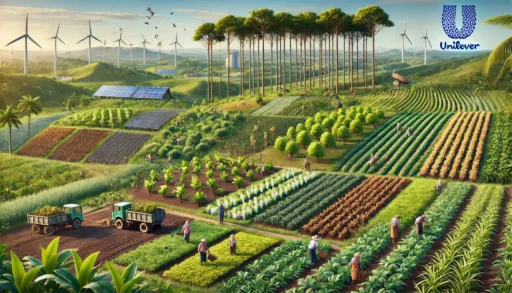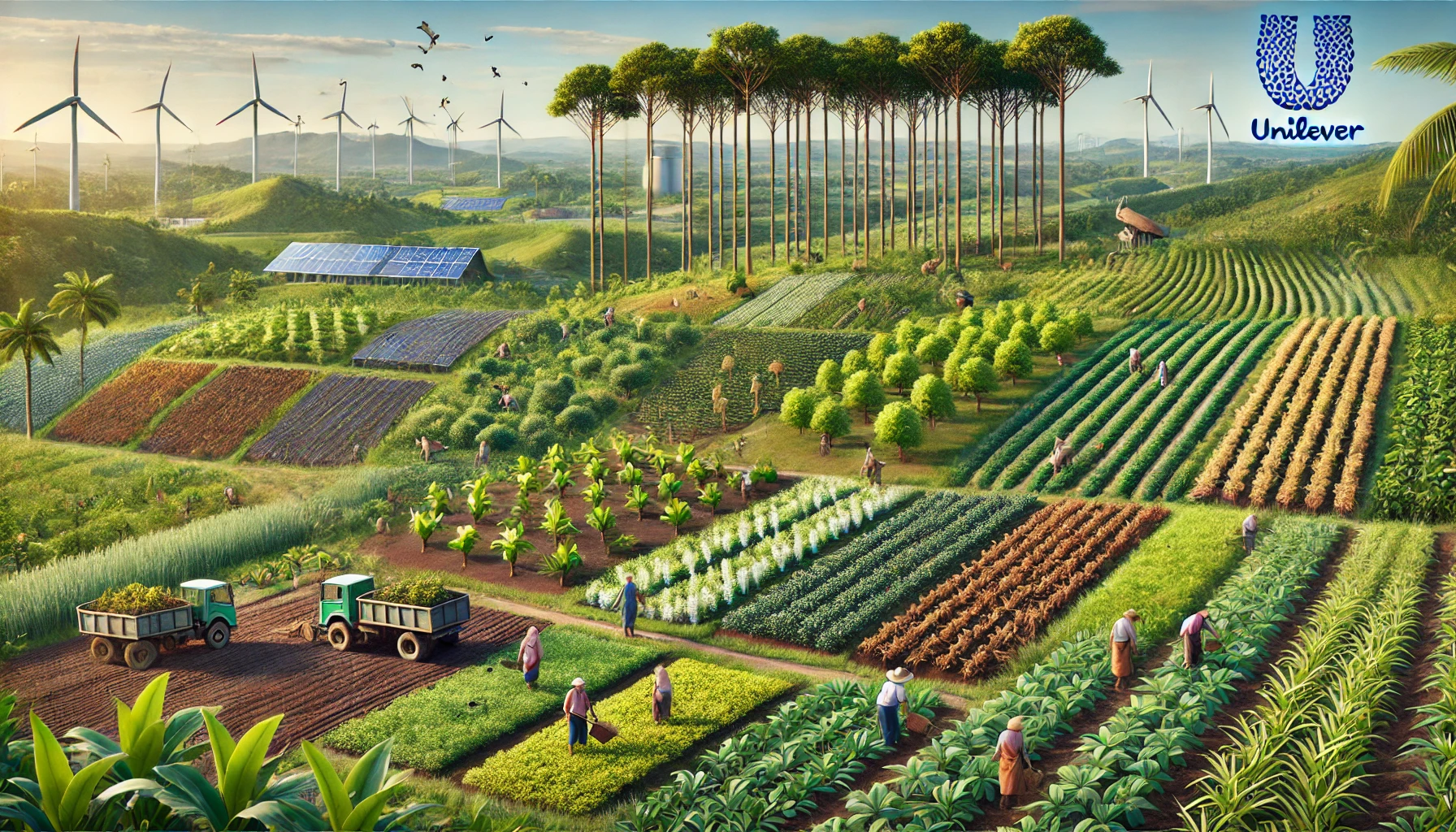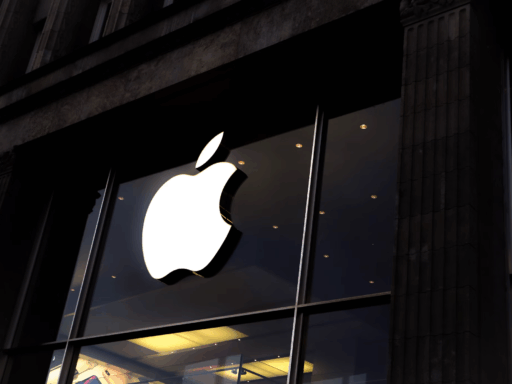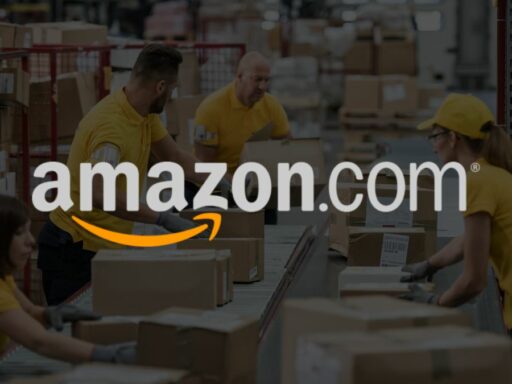Unilever has placed significant emphasis on regenerative agriculture as part of its broader sustainability strategy. As the company aims to lead in sustainable sourcing and ensure resilience in its supply chains, regenerative practices—focused on restoring and enhancing the health of ecosystems—are seen as a key lever to achieving long-term environmental goals, including carbon neutrality and biodiversity protection. The company’s investments in regenerative agriculture are a direct response to climate change, resource depletion, and the need for more sustainable food systems. Through a combination of financial investments, strategic partnerships, and innovation-driven approaches, Unilever is striving to make regenerative agriculture a core part of its global supply chain.
Unilever’s Commitment to Regenerative Agriculture
Unilever’s ambition is clear in its dedication to transitioning key agricultural commodities to regenerative practices, with the company’s sustainability goals aligned with broader frameworks like the UN Sustainable Development Goals (SDGs) and Science Based Targets initiative (SBTi). The company views regenerative agriculture as a cornerstone of its strategy to achieve climate positivity by 2030.
- Net-Zero and Regenerative Practices: Unilever has committed to becoming carbon neutral by 2039, with regenerative agriculture playing a crucial role in mitigating emissions from its agricultural supply chains. These efforts are targeted toward high-impact commodities such as tea, palm oil, soy, and cocoa, with a significant focus on reducing Scope 3 emissions linked to the sourcing of raw materials.
- Sustainable Sourcing: Unilever aims to transform its supply chain through regenerative agriculture by prioritizing methods that improve soil health, increase biodiversity, and reduce dependency on synthetic inputs, ultimately fostering long-term soil productivity and carbon sequestration.
- Collaboration and Scaling: Unilever’s regenerative agricultural efforts are not only limited to its direct suppliers but also extend to smallholder farmers and other agricultural stakeholders. With a specific focus on developing economies where smallholder farmers form a significant portion of the supply base, Unilever’s initiatives seek to embed regenerative practices across diverse geographical regions.
Major Investments and Partnerships in Regenerative Agriculture
Unilever has committed substantial financial resources to regenerative agriculture initiatives, including both direct investments in farming communities and collaboration with organizations that promote sustainable land management. The company’s regenerative strategy also aligns with its larger sustainability investments, which are designed to ensure long-term supply chain resilience.
- $1 Billion Climate and Nature Fund: As part of its 2021 climate and nature action plan, Unilever committed to investing $1 billion annually to fund its climate and nature goals. A significant portion of this investment focuses on regenerative agriculture, aiming to restore ecosystems, enhance biodiversity, and reduce carbon footprints in its supply chains.
- Supporting Smallholder Farmers: Unilever is particularly focused on smallholder farmers as they make up a significant proportion of its supply base. The company has developed a range of financial support programs to provide farmers with the tools, training, and incentives to adopt regenerative agriculture practices. These programs include direct subsidies for the implementation of sustainable practices and access to sustainable finance solutions to facilitate the transition to regenerative techniques.
- The Unilever Foundation: In partnership with various NGOs, the Unilever Foundation supports farmers’ adoption of regenerative techniques through programs like The Sustainable Agriculture Code and The Regenerative Agriculture Alliance. The Unilever Foundation aims to facilitate market access for regenerative products, enhance farmer livelihoods, and ensure the scalability of regenerative systems.
Regenerative Agricultural Practices
Regenerative agriculture focuses on rebuilding the health and biodiversity of farming ecosystems. Unilever promotes several practices to restore soil health, reduce carbon emissions, and enhance the resilience of agricultural systems, all of which contribute to a reduction in the company’s overall carbon footprint.
- Soil Health and Carbon Sequestration: A key focus of Unilever’s regenerative agriculture initiatives is improving soil health. Practices such as cover cropping, crop rotation, agroforestry, and reduced tillage are promoted to increase organic matter in the soil, improve water retention, and sequester carbon. The company’s approach aims to sequester 5 million tons of CO2 annually through soil restoration techniques.
- Agroforestry: Unilever has integrated agroforestry systems, which combine trees with crops, into its regenerative farming practices. This method helps sequester carbon, improve biodiversity, and increase the resilience of farms to climate shocks. For example, in its palm oil and tea supply chains, Unilever has partnered with Rainforest Alliance to promote agroforestry systems that enhance environmental services while boosting farm productivity.
- Water Conservation: As part of regenerative agriculture, Unilever emphasizes practices that optimize water use and prevent soil erosion, which is especially important in areas vulnerable to droughts. This includes the promotion of rainwater harvesting, water-efficient irrigation systems, and improving natural water cycles through regenerative land management.
Measurable Outcomes and Progress
Unilever’s regenerative agriculture investments have led to measurable improvements in its agricultural supply chains. The company tracks various indicators to assess the environmental impact of its regenerative agriculture initiatives.
- Over 1.5 Million Hectares in Regenerative Practices: By 2023, Unilever had extended its regenerative agriculture programs across over 1.5 million hectares of agricultural land globally, which includes key crops such as tea, palm oil, soy, and cocoa. The company has set a goal of increasing this coverage significantly, aiming for 100% of its key agricultural suppliers to implement regenerative practices by 2030.
- Carbon Sequestration: Unilever’s efforts in regenerative agriculture have contributed to carbon sequestration efforts that are expected to offset millions of tons of CO2. For example, a partnership with The Carbon Trust is helping farmers track and optimize their carbon sequestration efforts through improved land management practices.
- Reduction in Chemical Inputs: In certain regions, regenerative practices have led to a 30% reduction in synthetic pesticide and fertilizer use. This is part of the company’s effort to create more resilient farming systems and reduce the environmental footprint of its agricultural operations.
- Impact on Biodiversity: Unilever’s regenerative agriculture efforts are also resulting in positive impacts on biodiversity. Through agroforestry and natural habitat restoration, there have been significant improvements in species richness and soil microbial diversity on farms.
Partnerships and External Collaborations
Unilever works with a variety of organizations and industry groups to scale regenerative agriculture practices across its supply chain. These partnerships are crucial for sharing knowledge, leveraging resources, and ensuring broader adoption of regenerative agriculture techniques.
- The Soil Health Institute: Unilever partners with the Soil Health Institute to promote soil restoration practices and to develop protocols that measure soil health. This collaboration helps farmers understand how to improve soil carbon content and increase biodiversity.
- The Sustainable Agriculture Initiative (SAI) Platform: Unilever is a key member of the SAI Platform, a global coalition of companies working to drive sustainable agriculture practices across supply chains. Through this platform, Unilever collaborates with other industry leaders to promote regenerative agriculture at scale.
- Regenerative Agriculture Alliance: Unilever collaborates with the Regenerative Agriculture Alliance to help scale regenerative practices in the palm oil and tea sectors, which are critical to the company’s global sourcing strategies.
Future Plans and Long-Term Goals
Unilever plans to continue expanding its regenerative agriculture initiatives in the coming years. The company is focused on accelerating the adoption of regenerative practices through partnerships, innovations, and investments.
- Regenerative Practices for All Key Commodities: By 2030, Unilever aims for all of its key agricultural suppliers—across tea, palm oil, soy, cocoa, and other commodities—to adopt regenerative practices. This includes both large commercial farms and smallholder farms, particularly in regions like Southeast Asia, Latin America, and Sub-Saharan Africa.
- Supply Chain Transparency: Unilever is committed to improving supply chain traceability to ensure that regenerative agriculture practices are being adhered to throughout its value chains. The company is investing in digital tools to track and verify sustainability practices, which will provide greater transparency to both consumers and stakeholders.
- Scaling Support for Farmers: Unilever plans to expand its smallholder support programs globally, providing more farmers with the resources needed to adopt regenerative practices, including access to sustainable finance and markets.
Unilever’s investments in regenerative agriculture are a testament to its commitment to sustainable sourcing, carbon neutrality, and long-term agricultural resilience. The company’s focus on key agricultural commodities such as palm oil, soy, and tea, combined with substantial financial commitments and partnerships, is helping to scale regenerative practices across its global supply chains. While progress is notable, continued efforts will be required to achieve Unilever’s ambitious 2030 goals of transforming its entire agricultural supply base. With its focus on soil health, carbon sequestration, and biodiversity, Unilever is positioning itself as a leader in regenerative agriculture, helping to set the standard for the future of sustainable food systems.
Sources: Unilever’s 2023 Sustainability Report, Soil Health Institute, Rainforest Alliance and Unilever Partnership, Regenerative Agriculture Alliance






